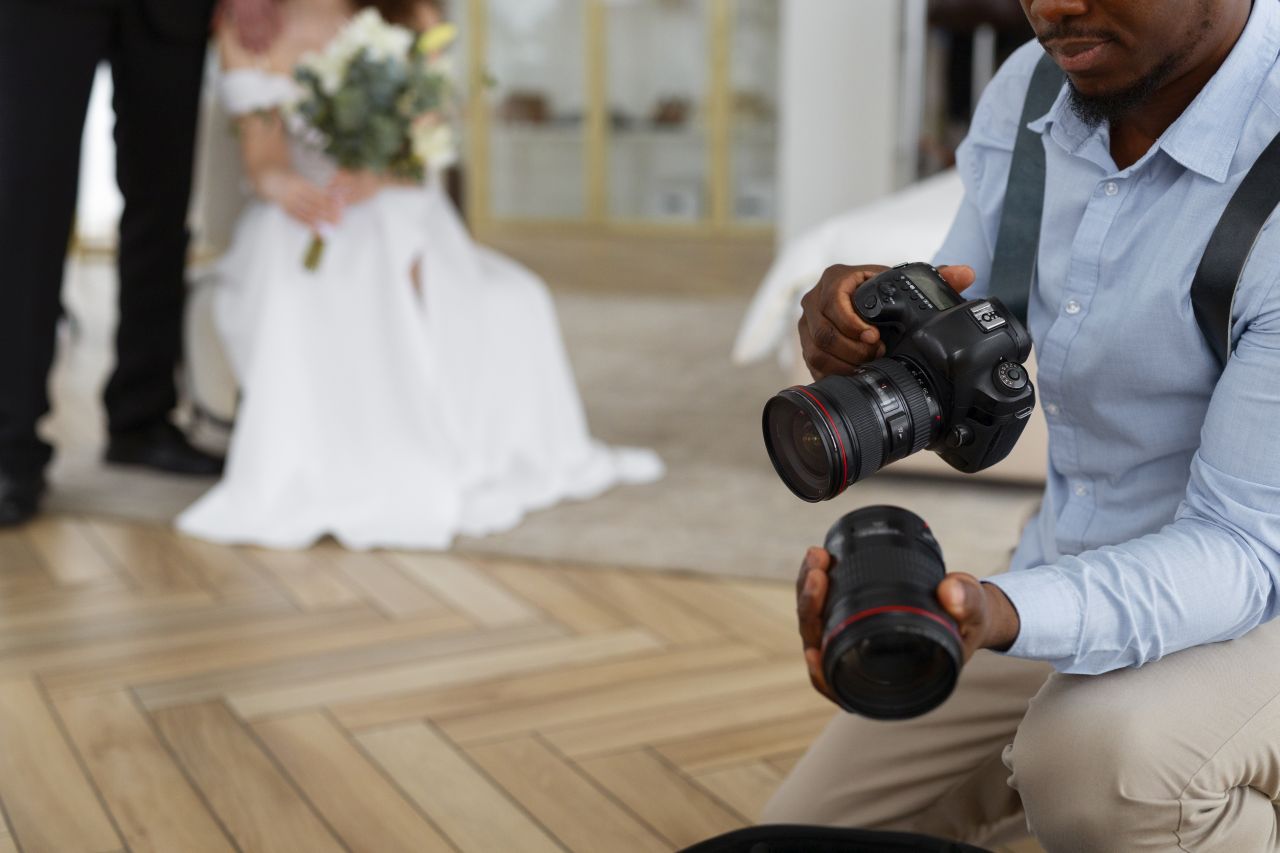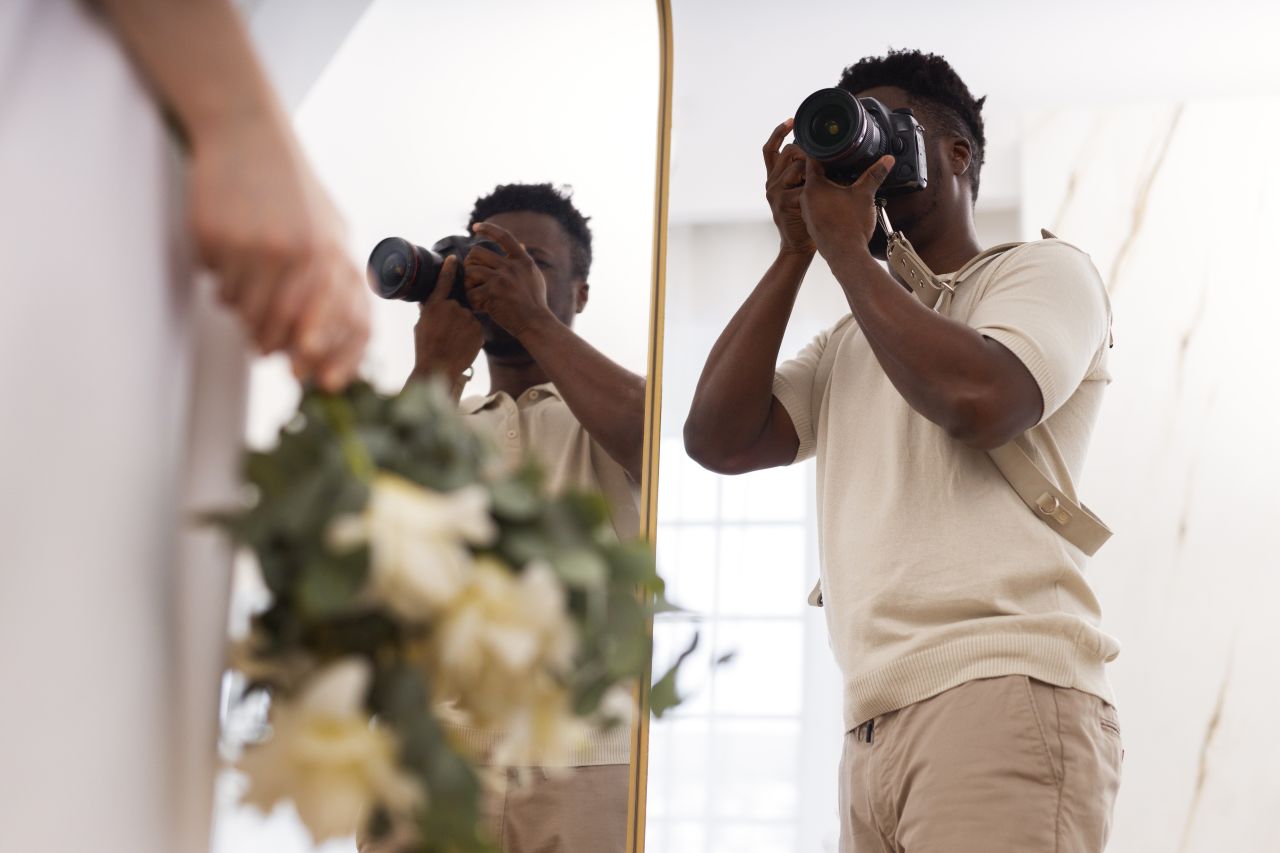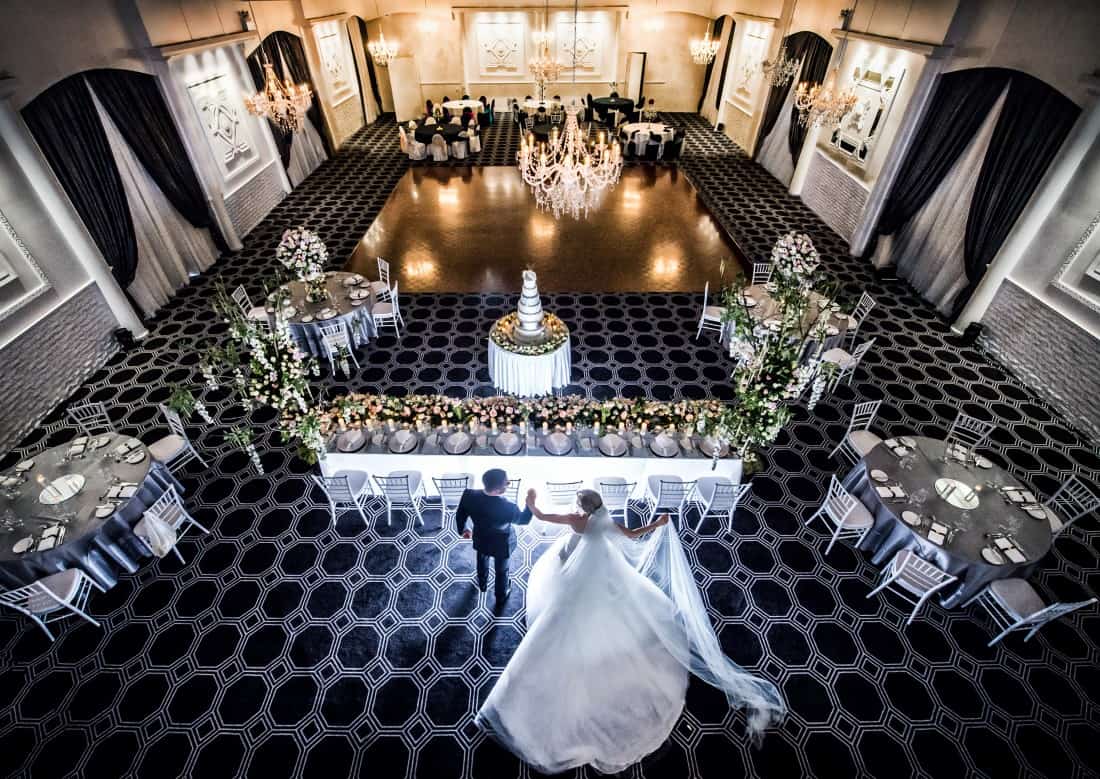Wedding photography is a unique genre that requires a creative eye and technical precision. The ability to capture fleeting moments, intricate details, and the range of emotions that unfold throughout the day is paramount. To achieve this, the right camera is indispensable. This guide will explore the best cameras for wedding photography, focusing on DSLR and mirrorless options and providing insights into what makes each a valuable tool for professionals and aspiring photographers.
Summary
Choosing the best camera for wedding photography requires a balance of creativity and technical capability. Wedding photographers need a camera that performs well in low light, has fast autofocus and high resolution, and is durable enough to handle various shooting conditions. Both DSLR and mirrorless cameras are excellent choices, each with unique benefits. DSLRs, like the Nikon D850 and Canon EOS 5D Mark IV, offer reliability, optical viewfinders, and long battery life. Mirrorless options, such as the Sony A7R III and Canon EOS R5, are more compact, offer advanced autofocus, and provide silent shooting. Essential factors include sensor size, low-light performance, battery life, and the availability of versatile lenses and accessories.
Understanding The Importance Of Camera Choice In Wedding Photography
Choosing the right camera for wedding photography is more than just picking a high-end model. It involves understanding the specific needs of wedding photography, such as low-light performance, fast autofocus, high-resolution sensors, and the ability to handle various shooting conditions. The camera must be versatile enough to capture everything from candid moments to posed portraits and from the glorious setting of a cathedral to the intimate ambience of a reception hall.
DSLR Vs. Mirrorless Cameras: Which Is Better For Wedding Photography?
DSLR Cameras
Digital Single-Lens Reflex (DSLR) cameras have long been the go-to choice for professional photographers. They are known for their reliability, extensive lens options, and superior battery life. The optical viewfinder, which reflects the exact image from the lens, allows for precise framing, especially in low-light conditions.
Advantages of DSLR Cameras:
- Optical Viewfinder: Provides a clear, real-time view of the scene, particularly useful in challenging lighting.
- Battery Life: DSLRs typically offer longer battery life, allowing uninterrupted shooting throughout a wedding day.
- Durability: These cameras are often built to withstand rigorous use, making them ideal for long events like weddings.
Mirrorless Cameras
Mirrorless cameras are the newer technology, offering a digital alternative to the traditional DSLR. They are lighter, more compact, and often feature advanced autofocus systems. The absence of a mirror mechanism allows for quieter operation, which can be a significant advantage during solemn wedding ceremonies.
Advantages of Mirrorless Cameras:
- Size and Weight: Mirrorless cameras are generally smaller and lighter, reducing long-shoot fatigue.
- Silent Shooting: Ideal for capturing quiet moments without disrupting the scene.
- Advanced Autofocus: Many mirrorless cameras offer superior continuous autofocus, essential for tracking moving subjects like the bride and groom.
Top DSLR Cameras For Wedding Photography
Nikon D850
The Nikon D850 is a powerhouse in the world of DSLR cameras. It boasts a 45.7-megapixel full-frame sensor, offering exceptional image quality and detail. Its dynamic range and low-light performance make it a favourite among wedding photographers.
Key Features:
- High Resolution: The 45.7 MP sensor captures incredible detail, ideal for large prints and close-up shots.
- Dynamic Range: Excellent for retaining details in highlights and shadows, crucial in high-contrast wedding scenes.
- Battery Life: Capable of over 1800 shots on a single charge, ensuring it lasts throughout the event.
Canon EOS 5D Mark IV
Another top choice is the Canon EOS 5D Mark IV, known for its reliability and versatility. Its 30.4-megapixel sensor balances resolution and file size, making it easier to manage in post-production.
Key Features:
- Dual Pixel Autofocus: Ensures sharp focus, even in live view and video shooting.
- 4K Video Recording: Allows high-quality video capture, perfect for those offering photography and videography services.
- Weather Sealing: Provides protection against the elements, essential for outdoor weddings.
Top Mirrorless Cameras For Wedding Photography
Sony A7R III
The Sony A7R III is a leader in the mirrorless category, offering a 42.4-megapixel full-frame sensor. It combines high resolution with speed and accuracy, making it a versatile tool for wedding photographers.
Key Features:
- High Resolution: The 42.4 MP sensor delivers detailed images, perfect for large prints and cropping.
- Fast Autofocus: 425 phase-detection points provide quick and accurate focusing, even in challenging conditions.
- Battery Life: Up to 650 shots per charge is impressive for a mirrorless camera.
Canon EOS R5
Canon’s EOS R5 is a formidable mirrorless option known for its 45-megapixel sensor and impressive video capabilities. It’s designed to meet the needs of both photographers and videographers, making it a versatile choice for weddings.
Key Features:
- 8K Video: Offers unmatched video quality, allowing for high-definition recordings that can be used for both video and stills.
- IBIS (In-Body Image Stabilization): Provides up to 8 stops of stabilisation, which is crucial for handheld shooting in low light.
- Dual Card Slots: allow simultaneous recording, ensuring you won’t run out of space or lose important images.
Factors To Consider When Choosing A Camera For Wedding Photography
Sensor Size and Resolution
The sensor size and resolution of a camera directly impact the image quality. Full-frame sensors are preferred in wedding photography because they capture more light, resulting in better performance in low-light conditions. Higher resolution sensors, while offering more detail, also produce larger files, which can be a consideration depending on your storage and workflow.
Autofocus System
A fast and reliable autofocus system is essential for wedding photography. Weddings are dynamic events, with subjects constantly moving. A camera with advanced autofocus, particularly with face and eye detection, will ensure sharp images even in challenging situations.
Low-Light Performance
Weddings often occur in dimly lit environments, such as churches or reception venues. A camera with good low-light performance, including a high ISO range and minimal noise, will allow you to capture clear images without relying on flash, which can be intrusive.
Battery Life
Given the length of a typical wedding day, battery life is a critical factor. DSLR cameras generally have longer battery life than mirrorless cameras, but advancements in mirrorless technology are closing the gap. It’s also advisable to carry spare batteries to avoid any interruptions.
Durability and Weather Sealing
Wedding photography involves shooting in various environments, including outdoor locations with unpredictable weather conditions. A camera with robust build quality and weather sealing will ensure it can withstand these challenges.
Lenses And Accessories
While the camera body is crucial, choosing lenses and accessories can significantly impact your wedding photography. A versatile lens kit that includes a fast prime lens (e.g., 50mm f/1.4), a wide-angle lens (e.g., 24-70mm f/2.8), and a telephoto lens (e.g., 70-200mm f/2.8) will cover most shooting scenarios.
Flash Units: Although natural light is often preferred, having a reliable flash unit is essential for low-light conditions or creating fill light in harsh lighting situations.
Memory Cards: High-speed memory cards must ensure your camera can write data quickly, particularly when shooting in RAW or capturing video. Dual card slots are a desirable feature for redundancy.
Tripod and Monopod: A sturdy tripod is useful for formal portraits and low-light scenarios requiring slow shutter speeds. A monopod can provide stability during the ceremony or reception while allowing mobility.
Conclusion
Selecting the best camera for wedding photography depends on your specific needs, style, and budget. Both DSLRs and mirrorless cameras have their advantages, and the choice ultimately comes down to personal preference and the type of weddings you shoot.
DSLRs like the Nikon D850 and Canon EOS 5D Mark IV offer proven performance and durability for those seeking a reliable and traditional option. On the other hand, mirrorless cameras like the Sony A7R III and Canon EOS R5 provide cutting-edge technology in a more compact package, making them ideal for photographers who value portability and innovation.
Regardless of the camera you select, the quality of your lenses and accessories is crucial. These elements can significantly enhance your ability to capture the beauty and emotion of a wedding day. Remember, the best camera is the one that aligns with your shooting style and enables you to produce breathtaking images that your clients will treasure forever.
FAQs About Wedding Photography
Which camera is best for marriage photography?
Best Wedding Photography Cameras
- Canon 5D Mark IV.
- Canon EOS 90D.
- Nikon D780.
- Nikon Z6ii.
- Canon EOS R6.
- Sony A9 II.
- Fujifilm X-T3.
- Olympus OM-D E-M1.
What camera do most professional photographers use?
Many professional photographers use high-end Canon or Nikon DSLRs, such as a Canon EOS 5D Mark IV or a Nikon D850. Depending on the professional results desired, there are many excellent options. These are the crème de la crème of cameras designed to produce amazing results.
How many megapixels is good for wedding photography?
While the megapixel count of your photographer’s camera is somewhat important, anything over 20 megapixels is probably more than enough. If the photographer crops the image, this size will reduce anyway from the maximum value.
Do you need a full-frame camera for weddings?
Full Frame (FX)—Weddings are notoriously unpredictable lighting environments. Shooting in dark, sometimes bizarrely lit venues requires a full-frame camera, which can pull in every pixel of light from the scene. There’s also more data to work with when it comes time to edit. High ISO ability with low noise.
Do wedding photographers use mirrorless cameras?
In turn, some of the best wedding photographers in the world use mirrorless cameras. Some of the naysayers’ concerns are valid, and some are ignorant.



